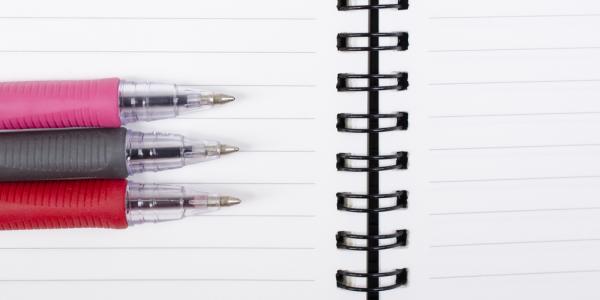
Comparing Ourselves to Others
When my daughter was a teenager, she spent a great deal of time thinking about appearance, just like every other teenage girl in the known universe. I’m too fat, my hair is too frizzy, my face is too round, and my eyes are too small.
Which may sound like a form of narcissism, but actually, it’s not. That would mean concentrating on herself which is not what she was doing. She was concentrating on other people’s appearance and how, every single time, she came up lacking. When she said her hair was too frizzy, what she meant was that it was not as glossy as the girl’s down the street, the girl in the magazine, the impossibly contrived girl in the teenage soap series (don’t get me started).
So now, we have a catchphrase in our house … “What’s the fastest way to unhappiness? Comparing ourselves to others.”
We all know peer envy is a perennial affliction of teenage girls but, according to research, it seems it’s increasingly affecting every age group. I rather hoped I’d grown out of it, or perhaps that I’d finally succeeded in growing up, but the number of times I am tripped up by a neat piece of schadenfreude, when I fail to practise what I preach, is terrifying.
Even as a supposedly sensible and mature adult, I’m not immune to those images of pretty, happy, shiny people. Intellectually and rationally I know they’re airbrushed beyond reality but emotionally, on a bad day, they make me feel terrible about myself. I haven’t changed; I’m still the same old blue eyed blonde with a perfectly pleasant face, which has done me good service over the years but suddenly, that is not good enough. At least, not good enough when held up in comparison.
I don’t think of comparisons as envy – more as self-abuse. If there’s one thing guaranteed to make ourselves feel bad about ourselves it is laying expectations on ourselves that we can never hope to achieve. It’s what therapists call the negative, self-destructive cycle of “should” or “ought to” thinking (as in I should have a successful relationship, I ought to have more willpower around food etc, etc). Just like her. Just like them.
There are inverse forms of comparison too. I see a woman on television. A perfectly ordinary, perfectly nice woman who is ten years younger than me but looks ten years older and I think, “Well, at least I look better than her.” Does it make me feel happier? No. It makes me feel like a bitch.
A friend came to see me the other day. She needed a chat because she was feeling so miserable. She was a lump, she said. She was a waste of space. She was also, I told her, severely depressed. But they manage to be happy, she said. Who are they? Them, you know, other people. Oh, them. Those people who appear to be happy and contented and confident, not because they necessarily are, but because we decide they are – cue the catchphrase: compared to us.
Now, I don’t know about you but I can’t think of a single person who has a perfect life, perfect happiness, perfect confidence – or perfect anything, come to that. What they might have is an appreciation of what they’ve got, rather than what they haven’t.
The psychologist, Professor Martin Seligman, who has specialised in mental illness for thirty years, decided that treating people as if they were victims of their own misery rather than their own destiny, was a blind alley and turned his attention to improving mental health instead. After various studies he concluded that a conscious, daily effort to feel grateful (he particularly recommends keeping a gratitude journal) is top of the list for an emotionally healthier and happier life. He’s right. When I make a mental gratitude list, (I’m far too lazy to actually write a journal) the world seems a kinder and more helpful place.
So here’s the deal. We need to count our own blessings, rather than those of others.
DISCLAIMER: The views, opinions and information expressed in this article and on Victoriahealth.com Ltd are those of the author(s) in an editorial context. Victoriahealth.com Ltd cannot be held responsible for any errors or for any consequences arising from the use of the information contained in this editorial or anywhere else on the site. Every effort is made by the editorial and content team to see that no inaccurate or misleading information, opinion or statement appear, nor replace or constitute endorsement from medical bodies or trials unless specified. Victoriahealth.com Ltd accept no liability for the consequences of any inaccurate or misleading data, information, opinion or statement. Information on Victoriahealth.com Ltd and in the editorials is provided for informational purposes only and is not intended as a substitute for the advice provided by your physician or other healthcare professional. You should not use the information on this website or in the editorials for diagnosing or treating a health concern or disease, or for the replacement of prescription medication or other treatment.